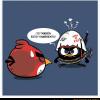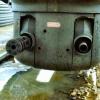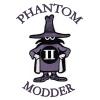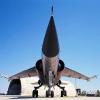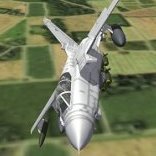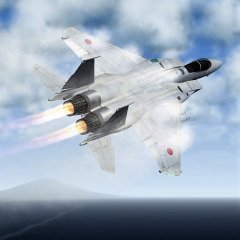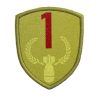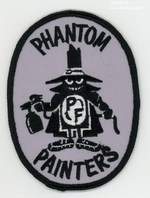Leaderboard
Popular Content
Showing most liked content on 04/01/2020 in Posts
-
12 points
-
11 points
-
9 points
-
9 pointsThis is the final skin and gunners ( the gunners are free to use model that has been tweaked by me) have been added.
-
6 pointsI AM ANNOYED AT THE FKIN IDIOTS SO......IM READY TO SAVE OUR NHS SOME WORK.....AND GIVE THE UNDERTAKERS SOME WORK\PAY
-
6 pointsPor aca seguimos con el viejito... empece con el cockpit pero me esta llevando siglos... el bichito vuela bastante mal... lo que le da cierta sensacion de realismo... pero el FM necesita mucho trabajo......
-
5 pointslos destructores Sumner ya están en el stock de la saga, y el crucero Belgrano fue creado hace tiempo, su actuación en el simulador no es tan relevante, pero si un portaaviones nuevo y mas detallado
-
5 points
-
5 points
-
4 pointsNext, I will start working on the Crotale SAM system requested by Coupi many thanks to Coupi for these photos, please if anyone has any more information, photos or blueprint for the missile system it would be nice of you to share with us.
-
4 pointsAlso, Saudi Arabia uses the same missile system its called shahine. I am thinking to make this one to
-
4 pointsGood news... Interestingly it was South Africa (and not France) who requested a mobile SAM system back in the 60s. Finally South Africa paid 85% of the development cost with the system being operational first with South African Armed Forces in 1971. Rare footage of Cactus (system name in SADF service): https://www.youtube.com/watch?v=USh97KrOMjY
-
4 points
-
3 pointsGreat work! Any Chance for a VW T2 and a T3 (different Versions)? Much used from different NATO countries....
-
2 pointsA good read for this day when most are stuck inside anyhow https://theaviationgeekclub.com/cf-121-redhawk-program-the-true-story-behind-canadas-purchase-of-30-soviet-built-mig-21-fishbed-fighters/?fbclid=IwAR2FZc7eEPTr10YKAbV41Xy09ts1cqbsSjZbKwao3wgbr83GiH3IJmkYbJc this should be one for teh skinners this month me thinks. oh and april fools every one!
-
2 points
-
2 points
-
2 points
-
2 points
-
2 points
-
2 points
-
2 pointsThere are loads of Jet Provost and Strikemaster skins out there on the FSX sites that only take about 5 minutes to convert for Russo's Provosts as he has kindly kept the same mapping as Rick Piper's original. Saudi Arabia Oman Ecuador Another New Zealand skin RAF from various time periods.. And some civilian owned display birds This desert camo skin could be converted to be used by Oman, or Dhimar..
-
2 pointsYes, I can recommend the Flugplatzmuseum Cottbus (Sorry, it seems the webpage is in german only). Very nice and friendly people there. I too had the chance to sit in the cockpit of this very Mi-24D. If interested, I can post some cockpit photos.
-
1 point
-
1 point
-
1 pointI remember as a kid in 60, I had a toy of the Mojave. The "mouth" opened up and I could stuff my Plastic Army Men (tm) inside!!!. Also had the Remco H-21, with working winch, and was motorized to run around on the floor, with the rotors spinning. Good times!! :)
-
1 pointalways loved this one. this is the helicopter my uncle was injured on. not clear on the details since i was pretty young when he told the story but he was injured in a loading accident. He said that because of that injury he was in an even worse motorcycle accident a week or so latter accident that ended his military career. the reason I know the chopper is that he scratch built a wooden model of the helicopter while he was rehabbing from his broken back.
-
1 pointForgive my brain freeze..... do sticks,collectives need be animated in pit or just set py pivot point and data.ini setting for them..? obviously doors etc nee animating.....I assume the sticks are same as the way throttles work in game by data entered in the ini... cheers chaps.... isolation aint so bad..... if you want a great distraction check out Brian May form Queens youtube ...he posts a vid every day...and plays some guitar for us.... https://www.youtube.com/channel/UCU4nOEpJp__bdC9qDz_cJ8Q
-
1 pointguuruu, my sincere compliments to you and all who worked on this - this is fantastic work. And I love the fact that you're focused on continuous improvement efforts - great job and cheers to the entire team!
-
1 point
-
1 point
-
1 pointI'm super excited about this project. I'm pretty sure China uses/used a version too.
-
1 pointYesterday their server was a bit overloaded. Maybe try again when things cool down? Otherwise PM me, and I will help you out.
-
1 point
-
1 pointLets try radar bombing ... Hmm ... ;-( Maybe wingman will be better ... .. not really ;-) ............... Anyway. I dropped a bit too fast .
-
1 pointView File Desert Sea Tiles Replacement SF2 Desert Sea Tiles Replacement -------------------------------------------------------------------------------------------------------- This is a new sea tileset to replace the sea of the stock desert terrain. These tiles give a more natural look to the sea and they can be used in every terrain which uses the stock desert tileset. Apart from the repaint new alpha layers were made for optimal result. Ground and water effects also included! --------------------------------------------------------------------------------------------------------- As always open readme.txt first to see installation instructions and credits. --------------------------------------------------------------------------------------------------------- License: This is a freeware; yet it can be redistributed only in other CombatACE mod packages. You are free to make further modifications for own use but if you plan to release a modified version of this package you must request permission first. In that case you must include original read me file. This mod may not in any way, shape or form be used in any payware additions. Submitter tiopilotos Submitted 03/30/2020 Category Tilesets for Terrains
-
1 point
-
1 pointgoing a bit fanciful with this project. presenting the B-1Cs of No 460 Squadron RAAF
-
1 point
-
1 pointI'm a mechanical engineer.... I'm stuck at home for the forseable future.... Don't give me ideas edit: showed the vid to m'lady.... "don't even think about it"
-
1 pointAnd of course this won't answer anybodies questions. But hey. This what I do. CL
-
1 point
-
1 pointReady to pick up the parabats... Cleaning up the remainings of that SWAPO camp...
-
1 pointProtecting the Vips in the Democratic Republic of the Congo. (I would kill for a TOD editor, so I can add more trees and create small hut villages!!)
-
1 pointOr what about Tsuyoshi Kawahito is one of the most famous sim designers. We owe him products such as Jane's Longbow II or, more recently, Microprose's European Air War (EAW). Now he has built up his own company, Third Wire production, and presents Project 1, a simulation centered around a forgotten period of the air military history, the Vietnam and Kippour era. Fighters Anthology, Chuck Yeager's air combat and, of course, Israeli Air Force are the only games that ever talked about this dark time, which is now the point of this new simulation. His creator has accepted to answer our questions. Check-Six: First, thanks for answering our questions Mr Kawahito. Tsuyoshi Kawahito: You’re welcome. 1) C6: Im curious about your long way since EAW. Can you tell us more about your way from MPS's 1998 last golden age to this current Third Wire time? TK: I’m afraid there isn’t much to tell... I left MPS at the end of 1998 to join a small technology start-up company. After about 4 months there, I started my own company, Third Wire Productions, to work on my own games. 2) C6: Can you tell us about the process that has lead P1 to such a choice of period and theater? TK: We wanted to do a simulation title that has “built-in” appeal to both casual and hard-core simmers, ie, a game that can appeal to everyone without having to set all the options to “easy”. We felt that a jet sim without complex modern avionics achieves that goal – you can just jump right in and mix it up with the MiGs without having to spend months reading the manual first. 3) C6: Can we have some additionnal informations about the campaign engine? Do you expect it to be closer to LB2 or EAW's one for instance? TK: It’s a lot closer to EAW than LB2 since Project 1 is an aircraft sim and not a helicopter sim. LB2 maps were tactical in size (50km x 50km), and you moved from one map to another as you progressed through your campaign. Project 1 campaign will take place in a single large map (1000km x 1000km), very similar to EAW campaign. And while missions in LB2 were all focused on ground action – the helicopter modelled in that game was basically a dedicated close-support platform, the missions in Project 1 will have player assigned to strategic targets as well as ground targets. 4) C6: And what about the ground war during this campaign? What importance will the ground battlefield take in the curse of war? TK: The ground war is handled at two levels: strategic and tactical. Between the player missions, army units are moved at strategic level based on their strength, supply level, moral conditions, and their overall objectives. Any combat at this level is resolved using an abstract system. Once in the mission, any army units in contact will actually engage in tactical battle – tanks will maneuver to capture their objectives and engage against defending tanks, artillery will lob indirect fire at enemy positions, etc. The player’s action can affect the result of ground war directly and indirectly. The player might be assigned to a close-support mission for any ground battle, in which case his action can have a direct impact on the outcome of the battle. And, at the end of each mission, the player’s mission result will be used as a modifier when resolving strategic combats, so the player can affect indirectly how the other friendly forces are doing. 5) C6: What will be the 3D engine performance? Do you expect it to equal the current benchmarks (with sims such as Il2?). Do you have further details about it and the computer we will need to run P1? TK: Well, it depends on how you’re defining “performance”. Our engine is designed to run well on today’s mid-range machines, and most of the screenshots you see on our website are taken on a PIII-650 with GeForce 2 MX. 6) C6: Many people here are very worried about P1's level of realism. When you declare that "it will match 90% of pilot's needs", it does make some of us even more perplexed... Can you tell us more exactly what is the level you expect to reach? Will it be closer to an USAF/IAF-like than a hardcore flight sim? TK: Project 1 is designed as a relaxed-realism survey sim, so we are not out to create a hyper-realistic simulation that only hard-core flight simmers can get into. But at the same time, we didn’t want to do a simplistic arcade game either, so what we hope to create is a game with good balance between realism and playability, a game that is fun and exciting to play for everyone. 7) C6: Have you any further detail about how the IR missiles will behave in the simulation? How do you expect to simulate the targeting and homing sequences? TK: Targeting sequence for IR missile is the same as in real life – you aim it using your gunsight. You have to manoeuver to bring your target into the gunsight, and if there is enough heat signatures off the target for the IR seeker to see (ie, you have to be aimed at the rear-aspect of the target), then the missile will lock on. The only indication will be the volume of the growl. 8) C6: And what about comms? Will they be, at least, as evolved than EAW, F4 or Il2 ones for instance? TK: The game will feature a basic comm interface to control wingman and other flight members, as well as requesting help and directions from TACC (Tactical Air Control Center). 9) C6: How will you simulate the Radar Intercept Officer aboard two-seated planes such as the F4? Will you let players use the backseat too? Will it be possible for two people to fly in the same Phantom in multiplayer? TK: No, we are not planning to model any back seat in the initial release. 10) C6: Talking about multiplayer, do you get any informations about multiplay modes planned in P1? TK: Our plan is to have two basic multiplayer modes: Dogfight and Co-op missions. Dogfight mode is just a quick head-to-head combat where you just try to shoot anyone else down, whereas Co-op mission mode is where you fly a single mission toward assigned objective. 11) C6: Have you any news to give us about the Lologramme's Mirage III possible integration? TK: His Mirage III is looking great. We've designed the game so it is very easy to add new skin, new aircraft, new map, new campaign, etc. Adding new aircraft, for example, is just matter of creating a new folder in the aircraft subdirectory, drop your data files in there. Next time the game starts up, it'll automatically be recognized and integrated into the gameplay. 12) C6: Finally, in your opinion, can you tell us about THE point that would make P1 more attractive that another jet sim? What do you think is P1's main, special "thing" that other sims do not have? TK: Well, I think this is a very exciting period of aviation history, one that haven’t really been covered by any other sims recently. C6: Thanks! from: www.checksix-fr.com Tuesday 16 July 2002
-
1 pointOf course: Monday, December 25, 2006 Tsuyoshi Kawahito's bookshelf in his small West Lake Hills office tells his story. Books on game design and computer programming sit next to books on aviation history. Military strategy books rest near white binders filled with pilot manuals. And near the bottom sits the telltale yellow of "Small Business for Dummies." Kawahito, 38, runs Third Wire Productions, a one-man game development studio in Austin that makes flight simulator combat games. His latest game, released this month and available online, is called "First Eagles: The Great Air War 1918." Tsuyoshi Kawahito spends months at libraries, in museums and on the Internet researching the planes he uses in his flight simulator games, such as these from his newest creation, 'First Eagles: The Great Air War 1918,' a World War I game. "That is a niche market within a niche market," said Chris Sherman, who used to run the annual Austin Game Conference. "It's very tough." Third Wire typifies the under-the-radar game development businesses that flourish in gaming cities. Kawahito is unusual for surviving this long on his own in an industry that is tough for newcomes to crack. In Austin, there are about 50 computer and video game development companies. It is a shaky industry; game studios frequently shut down because of lack of funding. Given the odds, Third Wire stands out for being able to establish a solid revenue stream. Kawahito's games may sound obscure, but they have a devoted audience. Played by aviation enthusiasts and history buffs, his main clients are 25- to 40-year-old males, older than most computer gamers. He once got an e-mail from a 62-year-old asking to be a beta tester for his game. But he has never had a true hit. His most popular games sold about 100,000 copies worldwide. He's a gamer more than a businessman, and he is shy about promoting himself. He doesn't disclose revenue, but his games sell for about $30. Flight simulation games bring in about $22.3 million each year, according to consumer market researcher NPD Group. Microsoft Corp.'s "Flight Simulator" is by far the most popular, consistently ranking in the top 20 of best-selling computer games. The overall PC games market is a $1 billion market. About $11 billion are spent each year on video and portable games. A FOLLOWING OF FLIGHT FANATICS Kawahito's games are available through online stores and retail outlets such as Gamestop and Best Buy. His latest game is using a new online distribution model, which allows Kawahito to tap into a much larger worldwide market. He is more concerned about making fun games than ones that make him a lot of money. The company recently became profitable after years of being in the red. "If I make a game that is fun to play, then I am happy," Kawahito said. Called TK by his friends, Kawahito has a cadre of devoted fans, including one influential computer gaming guru: Alex Aguila. Aguila is one of the founders of Miami-based Alienware Corp., which manufactures high-end gaming computers that cost $800 to $6,000. Alienware was recently bought by Round Rock-based Dell Inc. for an undisclosed sum. Aguila helped fund "First Eagles" because he wanted to play a flight simulation game based on World War I. It is designed to emulate the air battles over France. He gushes about Kawahito, saying he has revolutionized the flight simulation market. He said Kawahito builds games that allow players to add on to them. Players can create their own planes, maps and missions. "TK is a genius," Aguila said. "He is one of the most important developers in flight sim history." Other gamers say they appreciate the simplicity of Kawahito's games. "There aren't many bells and whistles and everything," said 47-year-old Rusty Casteele, a truck driver from Virginia, "just really good graphics that cater to the Average Joe." Casteele is a huge fan of Kawahito's games. For years he has tracked every game Kawahito has made, buying each one. "I loved 'Wings Over Vietnam.' I grew up in that era," Casteele said. "So when I put in that game, I can fly the F-4 Phantom that I watched on TV growing up. I can fly the F-15 Eagle that I watched on the news shows when Desert Storm was going on. I can fly those missions you saw on TV or heard about." INTERESTS TO INDUSTRY GURU Kawahito was born in Japan and moved to Los Angeles when he was 12. For a long time, he wanted to become a pilot, but his bad vision got in the way of that. "I knew I liked things that moved," Kawahito said. "Trains, cars, spaceships." In college, he planned on being an aircraft designer, so he majored in aerospace engineering and got his master's degree in the same subject from the University of Texas in 1996. Like many college students, he wanted to stay in Austin. His first job out of college was at Origin Systems, a groundbreaking Austin gaming company. "I sent them my résumé and told them I thought I would be good at this," Kawahito said. "I know games; I played them all throughout college. And I know aircraft." At the time, Austin-based Origin was working on several different flight simulator games. After working there a year, he moved to another studio in Baltimore to work on a different flight simulation game. That was when the genre started losing its popularity and many game publishers pulled their projects. "Everyone was getting out of the business, but I saw an opportunity," Kawahito said. "It was a niche market I thought I could capture and cater to." He moved back to Austin and started his own business in 1999. HIGH PRODUCTIVITY, LOW BUDGET It wasn't easy at first. He dug into his savings to start Third Wire, funding his own game, "Strike Fighters," which took him three years to release. After two years, Kawahito's savings dwindled, and he subsisted on ramen noodles and McDonald's 99-cent hamburgers and by skipping oil changes for his 1998 Toyota Celica. "I think that is why my car broke down," Kawahito said. "I didn't have enough money for an oil change, and then it stopped working. I started riding the bus." But that phase didn't last long after his first games found a following. Publishers started funding his next projects, and Kawahito got a cut of the sales of each game. He's not rolling in dough, however. He rents an apartment in town. He replaced his Toyota Celica with a Toyota 4Runner. His office is bare-bones, with three small rooms and a reception area with no receptionist, only a twinkling Christmas tree to greet visitors. This month, his office is empty as he plans his next project. He let all of his temporary workers go because he didn't need them anymore. Kawahito is able to survive by churning out games faster than most developers do. He puts out a new game about every six months. "What he was able to do with such little funding is unbelievable," Aguila said. "Most developers would charge millions of dollars. He did it on a very small budget." Kawahito said his secret is creating a main engine that he uses to program his games. That way, he doesn't have to re-create an engine every time. He does months of research in libraries, museums and online, digging for history books and photos of old aircraft, and tries to re-create them as accurately as possible. Thanks to his degrees in aerospace engineering, he understands how to build an aircraft. He occasionally asks for outside help from pilots but gets most of his data for his games from his research. When he's ready to start creating a game, Kawahito hires a temporary team of three game developers. Six months later, they have a game. He doesn't think much about his business beyond his next project. But he has dreams of expanding beyond flight simulation games, maybe developing a war strategy game. Or perhaps even space combat. "Or if I continue to just do this, that would be great," he said. Source: statesman.com https://www.wingsofhonour.com/firsteagles/articles/html_woh_firsteagles_articles_flying-under-the-radar_statesman.en.html
Important Information
By using this site, you agree to our Terms of Use, Privacy Policy, and We have placed cookies on your device to help make this website better. You can adjust your cookie settings, otherwise we'll assume you're okay to continue..

